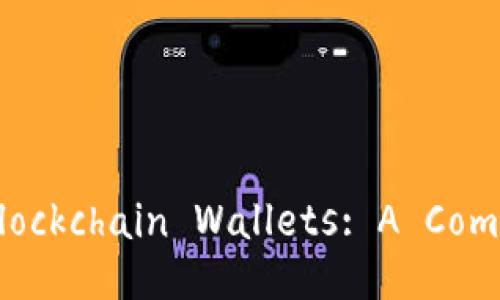What is a Blockchain Wallet?
A blockchain wallet is a digital wallet that allows users to store, send, and receive cryptocurrencies. Unlike traditional wallets that store physical currency, a blockchain wallet interacts with various blockchain networks, enabling users to manage their crypto assets efficiently. These wallets can come in different forms, including software wallets, hardware wallets, and paper wallets, each offering distinct benefits and functionalities.
Blockchain wallets help users manage their public and private keys, which are essential for accessing their cryptocurrency holdings. A public key is akin to an account number that can be shared with others to receive funds, while a private key is a secure code that should be kept confidential as it allows users to access and manage their wallets.
Types of Blockchain Wallets

There are several types of blockchain wallets, each suited for different user needs and security requirements. The main categories include:
1. Software Wallets
Software wallets are applications that can be downloaded to a computer or smartphone. They can be further divided into:
- Desktop Wallets: Installed on a personal computer, desktop wallets provide full control over your keys and assets. They are secure, but their safety can be compromised if the computer gets infected with malware.
- Mobile Wallets: Designed for mobile devices, these wallets allow users to perform transactions on the go. While convenient, they may be more vulnerable to theft if the device is lost or hacked.
- Web Wallets: Accessible through a web browser, web wallets make it easy to manage assets. However, security is a concern since they are often targeted by hackers.
2. Hardware Wallets
Hardware wallets are physical devices that securely store private keys offline. They are considered one of the safest options for storing cryptocurrencies as they remain immune to online threats. Users connect their hardware wallets to a computer when they need to make transactions, ensuring added security.
3. Paper Wallets
A paper wallet is a physical printout of your public and private keys. It is an offline method of storage and, while it provides high security against digital attacks, users must take care to keep the paper safe from physical damage and loss.
How to Create a Blockchain Wallet
Creating a blockchain wallet is a relatively straightforward process, but it’s essential to follow secure practices. Here’s a general guideline:
- Choose a Wallet Type: Decide whether you want a software, hardware, or paper wallet based on your security needs and usage frequency.
- Download/Acquire the Wallet: For software wallets, go to the official website or app store to download. If choosing a hardware wallet, you can purchase it from an authorized retailer.
- Create Your Wallet: Follow the setup instructions. Most wallets will generate a public address for receiving funds and a private key (or recovery phrase) for security.
- Secure Your Private Key: Store your private key in a secure location, preferably offline. For hardware wallets, ensure you keep the device safe from unauthorized access.
- Fund Your Wallet: Transfer cryptocurrency from exchanges or other wallets using your public address.
Benefits of Using a Blockchain Wallet

Utilizing a blockchain wallet presents numerous benefits, including:
- Ownership and Control: Blockchain wallets grant users complete ownership and control over their crypto assets, unlike holding coins on an exchange.
- Security: With a robust security structure, especially in hardware wallets, users can feel more secure against hacks and theft.
- Decentralization: Wallets align with the principles of decentralization that underlie cryptocurrencies, ensuring that there isn’t a single point of failure.
- Multiple Cryptocurrency Support: Most wallets support various cryptocurrencies, allowing users to manage different assets in one place.
- Ease of Transactions: Wallets make it simple to send and receive funds, enhancing the utility of cryptocurrencies in everyday use.
Security Tips for Blockchain Wallets
While blockchain wallets are designed to be secure, users must take extra precautions to protect their assets:
- Use Strong Passwords: Ensure that your wallet is equipped with a strong, unique password to deter unauthorized access.
- Enable Two-Factor Authentication (2FA): Utilize 2FA for an added layer of security whenever possible.
- Keep Software Updated: Regularly update your wallet’s software to patch vulnerabilities and access new features.
- Backup Your Wallet: Create backups of your wallet frequently and store them in secure locations.
- Be Wary of Phishing Scams: Always verify website URLs and avoid clicking on suspicious links that may lead to phishing attempts.
Frequently Asked Questions about Blockchain Wallets
1. Can I lose my cryptocurrency stored in a wallet?
Yes, it is potentially possible to lose your cryptocurrency if you lose access to your wallet or mismanage your private keys. If you lose your private key or recovery phrase, you cannot access your funds, and they are irretrievable.
To prevent this, it's crucial to maintain secure storage of your private keys, use backups, and consider utilizing a hardware wallet for larger amounts. Always ensure you keep multiple backups in different secure locations.
2. Is a blockchain wallet completely safe?
No wallet is 100% secure, but some types offer better protection than others. Hardware wallets are generally considered the safest option as they keep your private keys offline. However, software and web wallets can be safer when combined with strong security practices like using 2FA and strong passwords.
Ultimately, your safety relies on both the wallet technology and your adherence to security measures. Regularly updating your software and maintaining situational awareness can go a long way in safeguarding your assets.
3. Do I need a blockchain wallet for cryptocurrency transactions?
Yes, a blockchain wallet is essential for managing your cryptocurrency. You need it to send and receive crypto, as funds are linked to your public key, and you need your private key to unlock and access those funds.
Without a blockchain wallet, you would not be able to control your cryptocurrency or participate in the blockchain ecosystem. Therefore, it’s a fundamental component for anyone looking to engage with cryptocurrencies.
4. How do I recover my blockchain wallet?
Recovery of your blockchain wallet depends on the type of wallet you are using. Most software wallets provide a recovery phrase (usually 12-24 words) at the time of setup, which is crucial for recovery. If you lose access to the wallet, you can input this phrase into the same wallet software to restore your access.
For hardware wallets, you would typically use the recovery phrase provided during setup as well. If you have lost the hardware wallet and the recovery phrase, recovery may not be possible.
5. Can I use multiple blockchain wallets?
Absolutely. Using multiple blockchain wallets can enhance your security, as you can separate your assets based on usage or risk. For example, you can keep a small amount in a mobile wallet for daily transactions while storing larger quantities in a hardware wallet for added security.
Each wallet interacts with the blockchain independently and can hold various cryptocurrencies, allowing you to manage multiple assets effectively. However, ensure you apply consistent security practices across all wallets to safeguard your assets.
Conclusion
Blockchain wallets are vital tools for anyone wishing to engage with the cryptocurrency space. They secure your assets, provide transaction capabilities, and empower users with control over their digital funds. Choosing the right type of wallet and implementing robust security practices can lead to a safe and beneficial experience in the world of blockchain and cryptocurrencies.
As the crypto landscape continues to evolve, so too will the technology behind wallets. Staying informed and adapting to changes will ensure you use blockchain wallets effectively and securely.

